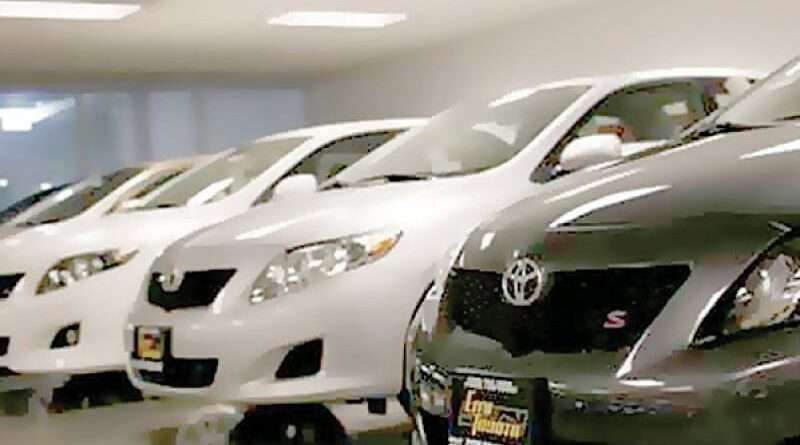Halt FBR’s Purchase of 1,010 Cars
|
Getting your Trinity Audio player ready...
|
The Federal Board of Revenue’s (FBR) decision to purchase 1,010 new vehicles for its officers has ignited significant debate in Pakistan’s Senate. Amid allegations of irregularities and concerns over the financial burden, a Senate panel has demanded that this contract be canceled.
This article delves into the controversy surrounding the procurement, analyzing the FBR’s justifications, the Senate panel’s objections, and the implications for governance and revenue collection in Pakistan.
The Senate’s Stand Against the Procurement
Committee Calls for Contract Cancellation
The Senate Standing Committee on Finance, led by Senator Saleem Mandviwalla, urged the federal government to halt the procurement of 1,010 cars. The vehicles, slated for use by grade 17 and 18 FBR officers, are expected to cost approximately Rs5.6 billion.
The committee decided to escalate the matter, planning to write to Prime Minister Shehbaz Sharif, the finance minister, and the Accountant General of Pakistan Revenues (AGPR) to stop the process.
Objections to the Procurement Process
Senator Faisal Vawda criticized the FBR’s procurement approach, claiming the process lacked competition. According to Vawda, Honda Atlas was directly selected for the contract, sidelining Indus Motors, which reportedly offered vehicles at a Rs200,000 lower price point and a two-year warranty compared to Honda’s one-year warranty.
Vawda described the contract as “tailor-made” to benefit Honda Atlas, alleging it violated transparency principles.
The FBR’s Defense of Vehicle Procurement
Why the FBR Needs New Vehicles
The FBR justified the procurement, stating that the vehicles are critical for field operations, particularly for:
- Locating non-filers.
- Conducting physical verifications of online tax returns.
- Performing supply chain audits and on-site inspections.
The FBR argued that digital tools alone cannot handle tasks like raiding factories, sealing non-compliant businesses, or verifying unregistered taxpayers.
“Without mobility, achieving the Rs13 trillion tax target will remain a daunting task,” the FBR stated.
Technical Limitations in Selection
Freedoon Sheikh, FBR’s Chief Administrator, explained that the procurement was limited to vehicles with an engine capacity of up to 1,300cc, as approved by the cabinet. This restriction excluded models like the Toyota Yaris (1,328cc), making Honda Atlas the default choice.
The FBR also clarified that the vehicles would be deployed exclusively for field operations and not for officers stationed at the headquarters.
Senate Panel’s Concerns Over Governance and Transparency
Lack of Competition in the Tender Process
The committee raised serious concerns about the lack of competitive bidding. Senator Vawda pointed out discrepancies, such as Indus Motors offering better terms but being overlooked.
Tailor-Made Contracts
Allegations were made that the procurement contract seemed customized to favor Honda Atlas, raising questions about transparency and fairness.
“This is a tailor-made contract to benefit Honda Atlas,” alleged Senator Vawda.
Impact on Public Trust
The controversy risks undermining public confidence in government processes, particularly in a financially constrained economy where every rupee matters.
IRS Officers Reject Rating and Reward System (RRS)
Opposition to the New Performance Evaluation System
Separately, the Inland Revenue Service Officers Association (IRSOA) condemned the government’s new Rating and Reward System (RRS), calling it discriminatory and deeply flawed.
The RRS limits the top performance rating to 10 out of 50 officers, forcing the majority to be labeled as underperforming or corrupt.
“No other civil service in Pakistan is subjected to such an intrusive review system,” stated the IRSOA.
Criticism of Evaluation Criteria
The association criticized the subjective evaluation criteria, arguing it creates room for bias and favoritism, further damaging the FBR’s credibility.
Call for Reform
The IRSOA has urged the government to reconsider the RRS, warning that it will exacerbate existing challenges and negatively impact officer morale.
Promoting Digital Payments: QR Code System as a Solution
The Push for Digital Payment Adoption
The Senate Finance Committee also discussed measures to formalize the economy, urging the State Bank of Pakistan (SBP) to promote QR code payment systems.
Shahnawaz Mahmood, CEO of Finnect Company, highlighted the benefits of QR payments, such as reduced transaction costs and easier onboarding for merchants.
Benefits of QR Payments
- Cost-Effective: Cheaper than traditional credit card systems.
- Ease of Adoption: Simplified processes for merchants.
- Formalization: Encourages documentation of transactions, aiding revenue collection.
The committee called on the SBP to prioritize this technology, citing its success in neighboring countries.
FAQs
1. Why is the FBR procuring 1,010 vehicles?
The FBR states that the vehicles are essential for field operations, such as locating non-filers, conducting physical audits, and verifying tax declarations.
2. Why is the Senate opposing the procurement?
The Senate has raised concerns about the lack of competition in the procurement process and potential favoritism toward Honda Atlas.
3. What is the Rating and Reward System (RRS)?
The RRS is a performance evaluation system for FBR officers that the IRSOA has criticized as flawed and discriminatory.
4. How can QR payments help the economy?
QR payments reduce transaction costs, simplify merchant onboarding, and promote formalization by documenting transactions.
5. What alternative solutions does the Senate propose?
The Senate suggests halting the vehicle procurement, revising the RRS, and promoting QR payment systems as cost-effective solutions.




